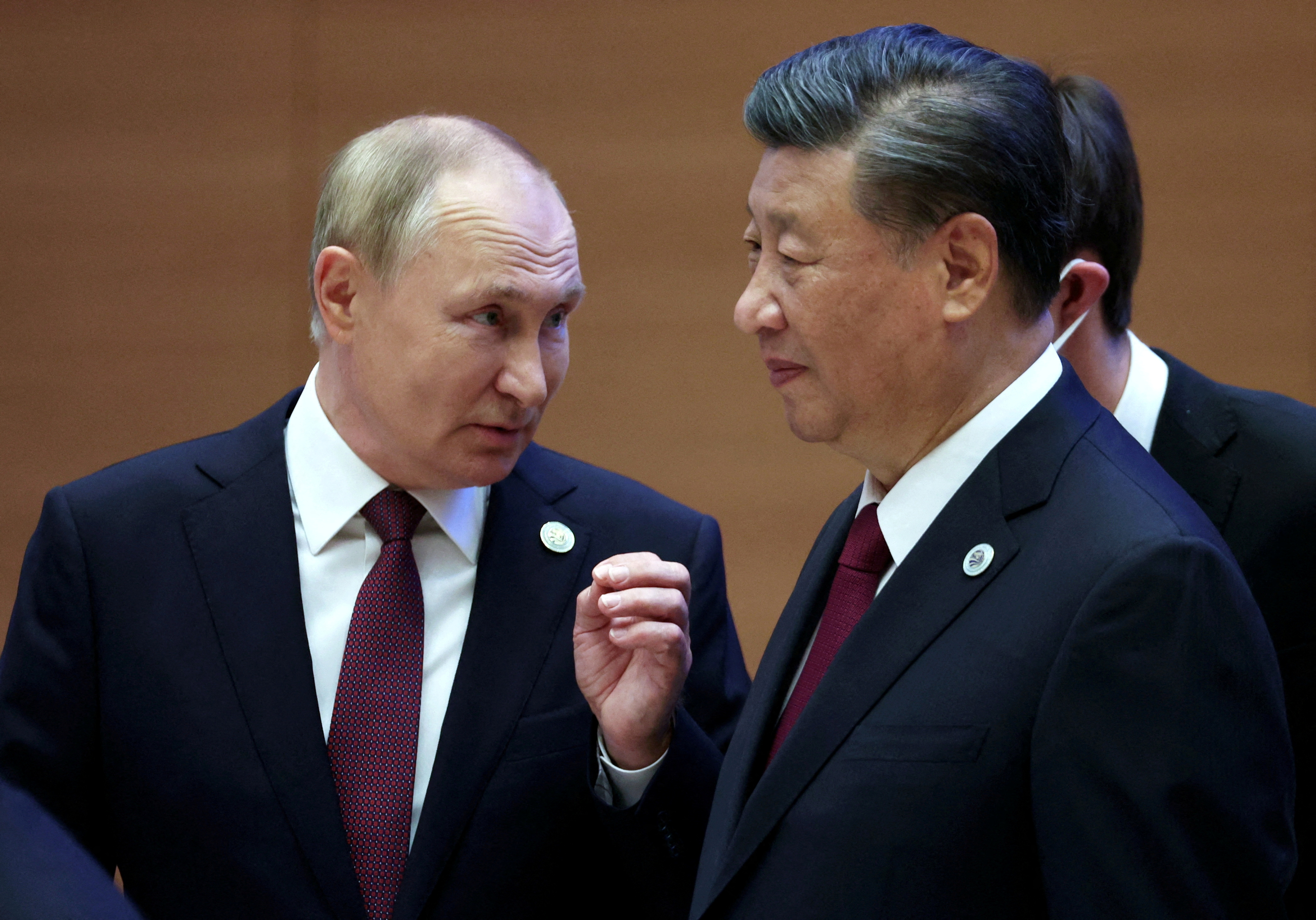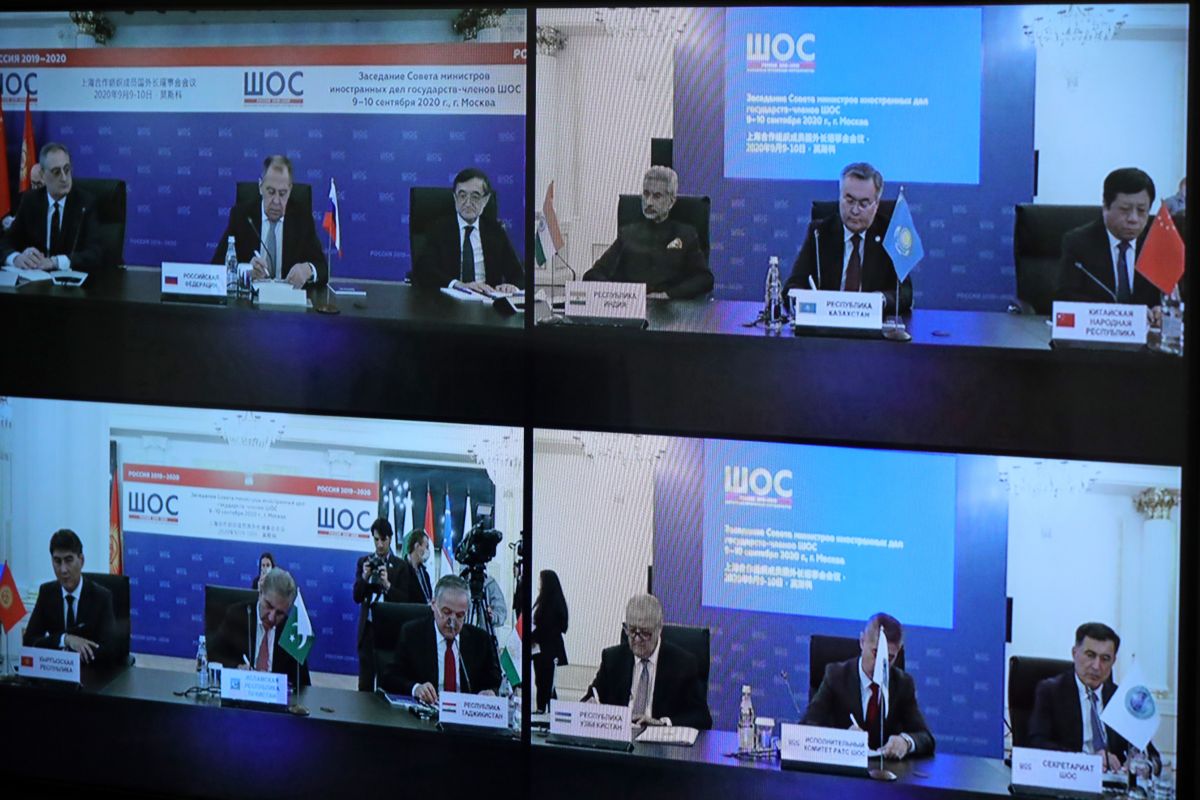What Came of the Shanghai Cooperation Organization Summit and the Xi-Putin Meeting?
From the perspective of Chinese and Russian leaders, the Shanghai Cooperation Organization (SCO) summit held on 15-16 September in Samarkand, Uzbekistan, was intended to show an effective counterbalance to the policy of the U.S. and its partners. However, both the summit itself and the meeting between Xi Jinping and Vladimir Putin, held on the summit sidelines on 15 September, confirmed the political differences within the SCO and the diminishing importance of Russia in the organisation.
 SPUTNIK / Reuters/ FORUM
SPUTNIK / Reuters/ FORUM
What were the circumstances at the time of the summit?
The meeting of SCO leaders, the first in three years, took place in conditions of increasing destabilisation in Eastern Europe, Central Asia, and the South Caucasus. The full-scale war with Ukraine induced by Russia and the losses suffered by the Russian army have weakened the Federation’s position in the post-Soviet area. On the eve of the summit, Azerbaijan invaded Armenia, and armed clashes began on the border of Tajikistan and Kyrgyzstan, testing Russia’s ability to deal with crises in its neighbourhood. China observed with concern the armed clashes in Central Asia as a threat to the stability of the region, important from the point of view of China’s economic interests. The day before the summit, on 14 September, Xi arrived in Kazakhstan, the first foreign official visit of the Chinese leader since the beginning of the pandemic. He confirmed China’s support for Kazakhstan in protecting its independence, sovereignty, and territorial integrity. In this way, he showed that he understood the fears of this state arising from, among others, earlier statements by Russian politicians undermining the subjectivity of Kazakhstan because of the presence of a large Russian minority there.
What did the members of the SCO manage to agree upon?
Although Xi and Putin try to present the SCO as an initiative of cooperation against a “nihilist West”, the summit did not conclude with specific decisions aimed at the U.S. or its partners. The reaction of the members of the organisation to the Russian invasion of Ukraine was restrained, and in the final declaration they did not express their support for China on the issue of Taiwan or the “One China” principle. The “Samarkand Declaration” focused mainly on development issues and economic cooperation within the SCO, which is emphasised by China. Iran became a member of the organisation, and Belarus, which is currently an observer, submitted a declaration for membership. The SCO also decided to tighten cooperation with several states, including Saudi Arabia, Egypt, and Myanmar. Developing cooperation with external partners, as well as Turkey’s announcements about its will to join the SCO (it currently has partner status), confirm the organisation’s ambitions to create a counterbalance to the West.
What goals did Xi Jinping achieve?
In Xi’s view, the purpose of the summit and meeting with Putin was to use Russia’s difficult situation to strengthen China’s position in the SCO, as well as in bilateral relations. In this context, the Chinese authorities positively received conciliatory words from the Russian president, among others, about understanding “China’s concerns about the development of the situation in Ukraine”. Thus, Putin confirmed that he was taking into account Chinese interests in Russian policy, including those that threaten the implementation of China’s initiatives and economic plans in Central Asia, including transport and energy. Xi’s toned-down rhetoric during the summit regarding cooperation with Russia was primarily calculated to be positively received by other SCO countries, which are concerned about the consequences of the policy of the Russian Federation. Another negative signal to Russia included raising the rank of the strategic partnership with Belarus during the Xi-Lukashenko meeting. The summit therefore served as a forum for Xi’s promotion of China’s global development and security initiatives.
What did Vladimir Putin achieve?
Putin wanted to show that Russia is not isolated in the international arena, and that the Asian direction is an alternative to its relations with the EU and the U.S. The Russian president criticised the unipolar international order shaped by the United States and called for the lifting of sanctions imposed on Russia. Putin wanted China’s support for building an anti-Western coalition in the world, which may be confirmed by the process of enlarging the SCO. However, the energy projects proposed by, for example, Uzbekistan and China, bypassing Russia, show that it is becoming a problem for their activity on the global market. Russia expected all SCO members and observer states to support its “special military operation” in Ukraine. However, the post-meeting Putin-Xi statement made no reference to the war in Ukraine, and Indian Prime Minister Narendra Modi said, “now is not the time for war”. This proves the limited support of the SCO members for Russia’s policy. Additionally, as part of bilateral meetings, the Russian leader had to wait for the leaders of several countries (he was late for the talks himself), which was a symbolic gesture that demeaned the Russian leader.
What will be the consequences of the summit for Sino-Russian relations?
The SCO summit and the Xi-Putin meeting showed that China, despite objections to the effects of Russia’s policy, will continue to support it politically, including expressing understanding of Russian security interests in Ukraine, emphasising the Russian view that the war was provoked by the West. Due to the difficulties associated with the sanctions, Russia will become more and more economically dependent on its Chinese neighbour and take into account its perspective in its actions, as indicated by Putin himself. However, the escalating tensions in Central Asia, including among members of the SCO, will result in disputes between Russia and China. They will not go into a phase of conflict, as both countries share common interests, including rivalry with the United States. This was also confirmed by the Sino-Russian strategic security consultations held after the summit (18-19 September), which discussed, for example, deepening military cooperation.




